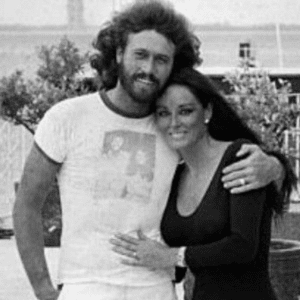
Alanis Nadine Morissette was born on June 1, 1974, in Ottawa, Canada. Growing up in a bilingual household, she was fluent in both English and French, a skill that would later influence her songwriting. Her parents, Alan and Georgia Morissette, were educators who instilled in her a love for learning and creativity. From a young age, Alanis demonstrated an extraordinary talent for music. At six, she started playing the piano, and by ten, she was writing her own songs.
Alanis’s first brush with the entertainment industry came through the Canadian children’s television show You Can’t Do That on Television. This early exposure to performing gave her confidence and solidified her dream of pursuing a career in the arts. By her early teens, she had already recorded her first dance-pop single, paving the way for what would become a groundbreaking career.
In her teenage years, Alanis released two dance-pop albums in Canada: Alanis (1991) and Now Is the Time (1992). These albums highlighted her vocal talent and catchy melodies but were rooted in the pop aesthetic of the time. While they enjoyed moderate success in Canada, Alanis felt constrained by the bubblegum pop image and longed to explore more profound themes in her music.
Determined to evolve as an artist, she moved to Los Angeles in 1994, a decision that would forever change her life. In Los Angeles, she connected with producer Glen Ballard, known for his work with Michael Jackson. Together, they began crafting a new sound—raw, emotional, and unapologetically real. This collaboration birthed an album that would define a generation.
In 1995, Alanis Morissette released Jagged Little Pill, a record that redefined her career and left an indelible mark on music history. The album’s unique blend of alternative rock, pop, and confessional lyrics struck a chord with listeners around the world. Tracks like “You Oughta Know,” “Hand in My Pocket,” and “Ironic” became anthems of self-discovery, heartbreak, and empowerment.
“You Oughta Know,” in particular, was a groundbreaking moment for female artists. Its raw, unapologetic exploration of betrayal and anger gave voice to emotions rarely expressed so openly in music, especially by women. The song’s candidness was both shocking and liberating, earning Alanis critical acclaim and legions of fans. The album sold over 33 million copies worldwide, won four Grammy Awards, and solidified her status as a trailblazing artist.

Following the massive success of Jagged Little Pill, Alanis continued to evolve as an artist. Her 1998 album, Supposed Former Infatuation Junkie, showcased a more introspective and spiritual side. Tracks like “Thank U” reflected her journey of self-awareness and gratitude, while songs like “Unsent” explored complex relationships with sensitivity and nuance. Though the album didn’t replicate the commercial success of her debut, it reinforced Alanis’s commitment to artistic authenticity.
In the early 2000s, she released Under Rug Swept (2002) and So-Called Chaos (2004). These albums explored themes of independence, love, and mental health. Hits like “Hands Clean” and “Everything” continued to resonate with fans, proving that Alanis’s ability to connect with listeners was timeless.
Alanis Morissette’s creative journey extended beyond music. She made notable appearances on television shows like Sex and the City, Curb Your Enthusiasm, and Weeds, where she showcased her versatility as an actress. Her ability to bring humor and depth to her roles reflected her multi-dimensional talent.

In 2019, her seminal album Jagged Little Pill was adapted into a Broadway musical, earning critical acclaim and several Tony Awards. The production brought her iconic music to a new generation, reaffirming the album’s relevance decades after its release.
Alanis also ventured into podcasting, writing, and public speaking, focusing on mental health, motherhood, and personal growth. Her openness about her struggles with postpartum depression created a safe space for conversations about mental health, inspiring countless women to seek help and prioritize self-care.
In her personal life, Alanis has experienced her share of ups and downs. She married rapper Mario “Souleye” Treadway in 2010, and together they have three children: Ever Imre, Onyx Solace, and Winter Mercy. Motherhood has profoundly influenced her music and activism, inspiring her to advocate for holistic parenting and wellness.

Alanis has been vocal about her mental health journey, sharing her struggles with anxiety and postpartum depression. Her honesty has helped destigmatize mental health issues and encouraged others to seek support. Her advocacy extends to environmental sustainability, gender equality, and education, making her a force for positive change on and off the stage.
In 2020, Alanis released Such Pretty Forks in the Road, her first album in eight years. This deeply personal record explored themes of resilience, trauma, and self-acceptance. Songs like “Reasons I Drink” and “Smiling” captured the struggles and triumphs of her journey, resonating with fans who have grown alongside her.
The album reaffirmed Alanis’s status as a masterful storyteller, blending her signature confessional style with poignant melodies. Its release proved that, even after decades in the industry, her ability to create impactful music remains unmatched.

Alanis Morissette’s influence extends far beyond her music. Her ability to express vulnerability, anger, and hope has redefined what it means to be a female artist in the music industry. She broke barriers, inspired countless artists, and gave a voice to emotions that many were afraid to confront.
Her legacy is one of resilience, authenticity, and empowerment. Whether through her groundbreaking albums, her acting roles, or her advocacy work, Alanis continues to inspire and uplift audiences around the world.

Alanis Morissette’s journey is a testament to the power of authenticity and self-expression. From her early days in Canada to her global success, she has remained true to her vision and values. Her music, marked by its emotional honesty and raw power, has touched millions and continues to inspire new generations of listeners.
As she moves forward, Alanis remains a beacon of hope and empowerment. Her story reminds us that embracing our true selves, with all our flaws and strengths, is the key to living a meaningful and fulfilling life.


